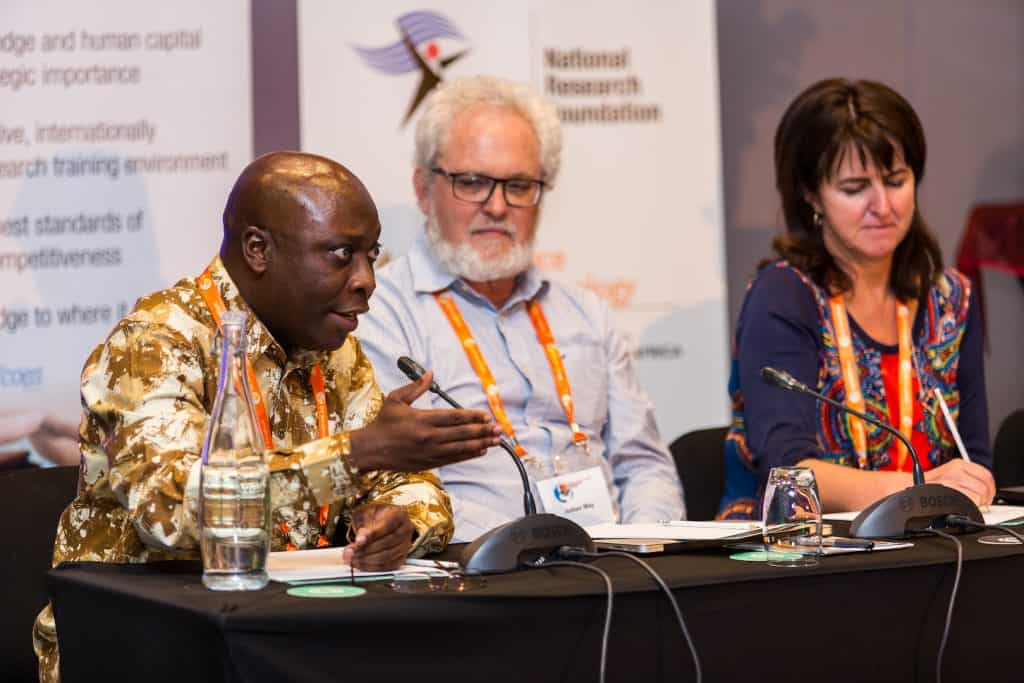
Prof Gyebi Duodu (left), Prof Julian May (centre) and Prof Riëtte de Kock (right). Image credit: https://21centurysorghum.com/
Climate-resilient African grains came under the spotlight during the Sorghum in the 21st Century Conference, recently held in Cape Town. Co-hosted by the University of Pretoria (UP), the international conference brought together global experts to share insights and debate the importance of sorghum in Sub-Saharan Africa, and its potential role in enhancing food and nutrition security and driving economic development.
Despite its low water requirement in comparison to maize; relative drought-resistance and potential benefits for health and sustainable agriculture, sorghum has received little attention in comparison to other crops. However, the increasing impact of climate change calls for renewed exploration into sorghum as a crop for food and beverage.
Sorghum is the third most important cereal grain after maize and wheat, yet many South Africans don’t know about the grain said UP’s Professor Riëtte de Kock, speaking during the National Research Foundation’s Science for Society Lecture.
Rapid urbanisation and rising incomes have caused extensive changes in diets, as people opt for convenience over health. Indigenous grains present healthier alternatives to high-energy, high-glycaemic index (GI) foods made from highly refined wheat and maize. Indigenous grains like sorghum present alternatives to reduce the risk of strong climatic conditions in Africa & the world. A lot of work has been done to identify the health promoting properties of indigenous grains, but “more research is needed, particularly human studies, to increase the knowledge base concerning the health benefits of legumes,” said Professor Gyebi Duodu of UP and an affiliate of the Centre of Excellence in Food Security (CoE).
“Not only do indigenous grains like sorghum have potential to improve diets, if properly marketed, they can contribute to developing small businesses,” Duodu added.
Similarly, Professor Julian May, director of the CoE called for intensifying efforts to bring indigenous grains to the market and make them readily available for consumers. He also emphasised the need for scientists to make their research more accessible to help educate the public about the health-promoting properties of indigenous grains.
This sentiment was echoed 2009 World Food PrizeLaureate, Professor Gebisa Ejeta, who during the NRF Lecture said: “Africa’s development must come from within through establishing excellent universities, doing cutting-edge research with scientists that are socially engaged and making policy impact.”
related Articles
Away from the precipice; toward food security as a reality for all
Photo: Ashraf Hendricks/CoE-FS. “Food security at a tipping point; are we heading for ‘Zero Food’?”. That was the question that…
Climate change is increasing need for drought- and heat-tolerant crops
© Nickay 2002-2022. All Rights Reserved. Farming is in the blood of Dr Ali Elnaeim Elbasheir Ali. As a young…
Climate threats spark exciting research into drought tolerant crops
In Africa, and globally, food crops are expected to be under much increased threats over the next couple of decades…



